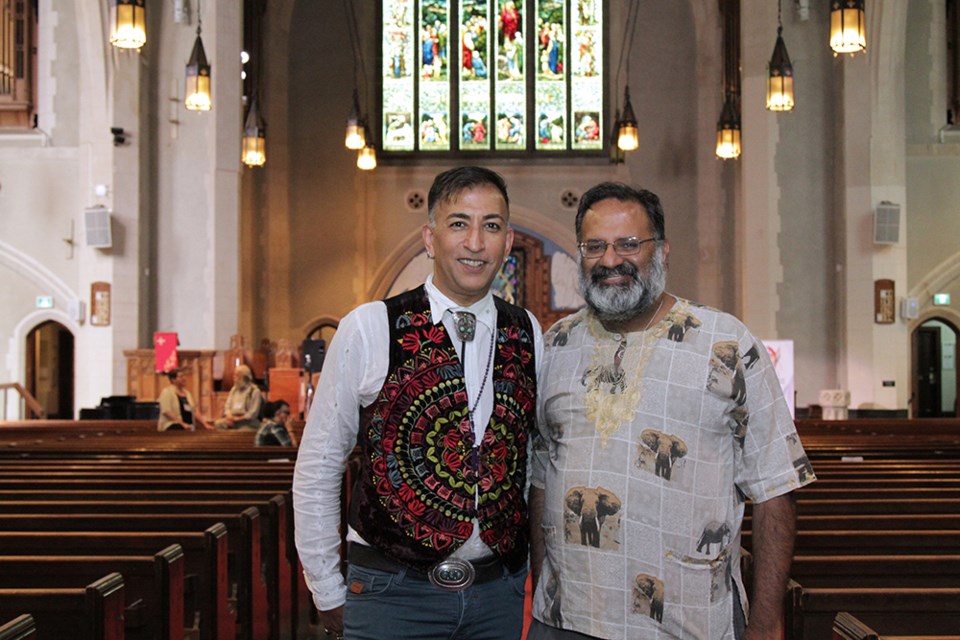Amidst a backdrop of increased anti-Muslim sentiment, Vancouver’s Unity Mosque provides a space where queer Muslims are safe to pray and connect.
El-Farouk Khaki, founder of both the Vancouver and Toronto Unity Mosques, was a speaker at Vancouver’s Spirit Pride conference last weekend. He’s hoping to increase people’s understanding of Islam, specifically amongst the LGBTQ+ community.
“Part of this growing tide of Islamophobia has been to marginalize people within the Muslim tradition who ... are not seen as being part of the dominant discourse,” he says. “When there’s been an article, an interview, or social media [featuring] LGBT Muslims, we are actually attacked by other LGBT folks, and told things like go back to Iran and go back to Saudi Arabia.”
Interviewed by phone before the event, Khaki said that Unity Mosque is open to everyone, but for safety reasons, the locations of where they meet are not posted publicly.
“Security is always an issue. We want to know who is coming into our space,” he says. “A lot of our folks are survivors of spiritual trauma or are recovering from spiritual trauma and the last thing they need is a homophobe or misogynist to, sort of, invade.”
Specifically, Khaki worries about racist attacks. At one point his main safety concerns were around Muslims who didn’t agree with Unity Mosque’s opinions on gender and sexuality, but the growing anti-Muslim sentiment seen in the past year has him concerned.
“In the last year or so, what we’ve been seeing is anti-Muslim sentiment articulated, and we see this in comments and online and in various media.”
The Vancouver-raised immigration lawyer has lived in Toronto since the late ’80s, but has remained connected in Vancouver. After co-founding the Toronto Unity Mosque in 2009, he helped bring the group to Vancouver.
“The Unity Mosque is queer-affirming, which means that about 40 to 50 per cent are not LGBT-identified,” he says. Unity Mosque groups have formed in other cities, too, including Montreal, Calgary, Ottawa and Kitchener-Waterloo.
With Khaki living in Toronto, it’s up to others to run the Vancouver chapter. Anti-fascist and LGBTQ+ activist Imtiaz Popat attends some of the gatherings, which happen weekly on Saturday evenings.
“It is very women-inclusive, so men and women pray side by side together, and then we pray in a circle afterwards ... it’s not just for Muslims, anybody’s welcome to participate,” he says.
Popat says about a dozen people attend, including members of Vancouver’s trans community.
“In terms of safety, anybody can go to any mosque, but for trans folks it’s very difficult, you know. If you’re trans and Muslim [the Unity Mosque is] probably the safest place to go and pray where you are welcome.”
The Unity Mosque doesn’t have a permanent space in any of the cities where it’s active, and while Khaki hopes to establish a permanent, designated space for the Toronto chapter in the coming years, Popat says he would like to see more groups gathering in suburbs such as Surrey and New Westminster.
Both Popat and Khaki say that non-Muslims can support their movement by speaking well of them and attending their events.
“Our space is open to everybody regardless of how they identify,” says Khaki. “We are not out seeking converts, we are seeking understanding ... we are not here to actively convert, we are here to create safe and healing spiritual space for people.”
Note: This story has been modified since it was first published.



